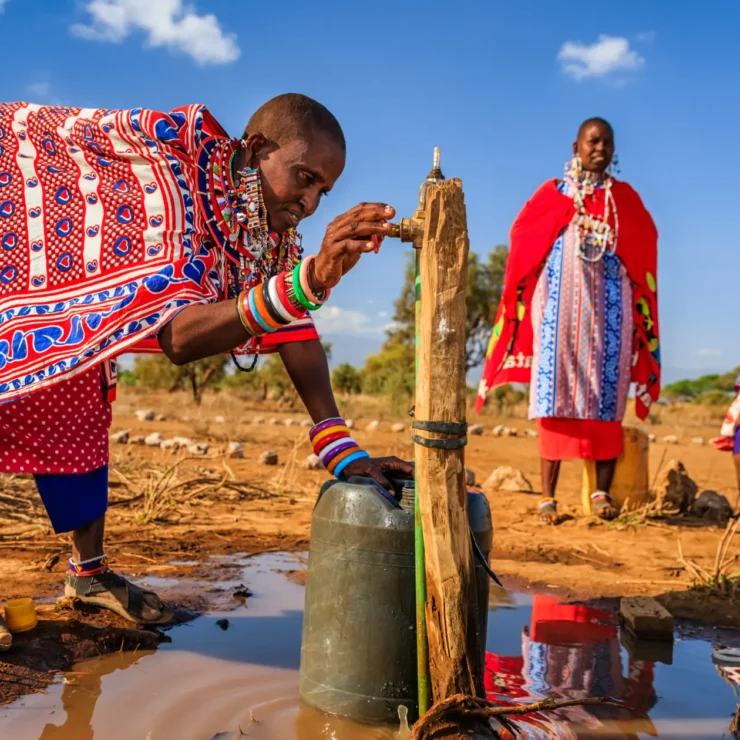Sustainable Growth Through Breaking Barriers
In a rapidly advancing world, the need to harness the collective strength of our communities has never been more pivotal. Empowering communities forms the cornerstone of sustainable growth, fostering resilience, nurturing innovation, and driving a shared vision for a prosperous future. We must comprehend the complex dynamics of empowerment and its significant effects on society’s social, economic, and environmental progress. This approach cultivates a sense of ownership and pride within the community and establishes a robust foundation for enduring development.

Building Strong Foundations for Community Growth
At the core of empowering communities for sustainable futures is the principle of building strong foundations. This involves creating resilient infrastructure and providing access to essential services such as clean water, healthcare, and reliable energy. Communities are more likely to thrive when basic needs are met and when they can recover from setbacks, whether an economic recession or a natural disaster. Developing these foundations requires investment in physical assets and social institutions but is critical for long-term, sustained community growth.
Fostering Sustainable Practices in Development
Crafting a sustainable community is deeply rooted in education and awareness. It’s about bringing to light the importance of our every action on the environment and showcasing the long-term benefits that sustainable living can bring. Getting the community involved is essential; it’s not just about handing down decisions from above but building from the ground up. This could mean setting up local green initiatives, where neighbors unite to share ideas and champion eco-friendly practices. It also involves examining and designing development projects with an eye toward their long-term impact on land, resources, and the local ecology.

Ensuring Inclusivity in Economic Advancement
True development cannot be achieved without inclusivity. Economic programs and opportunities must be accessible to everyone, from the marginalized sectors to the more established community members. It involves identifying and removing barriers to economic participation and ensuring that development benefits are shared equitably. This includes attention to fair labor practices, support for minority and women-owned businesses, and worker rights and benefits.
Ensuring inclusivity in economic advancement is pivotal, and it hinges on the principle that everyone, regardless of gender or age, should have equitable access to employment opportunities. To reduce the dependency rate and alleviate poverty, it’s crucial to target job creation for women and the youth. This approach not only taps into the vast potential of these groups but also drives diverse perspectives and innovation in the workforce.
Educating for Financial Success
Financial literacy is key to individual and community success. By educating community members on financial matters—including budgeting, saving, investing, and understanding credit—individuals can make informed decisions that benefit not only their circumstances but also the economic health of their communities. Strong financial education programs can lead to increased savings rates, better investment in local businesses, and improved economic stability.
Improving Lives Through Enhanced Quality Standards
Enhanced quality standards in housing, healthcare, and education can significantly improve lives. By implementing and enforcing these standards, communities can ensure that all members have access to safe housing, quality healthcare services, and education that prepares them for present and future challenges. These improvements help create a more conducive environment for growth and development, attracting businesses and investments, and thereby reinforcing a cycle of positive change.
Catalyzing Change with Skills Training Programs
Skills training programs can act as a powerful catalyst for change. By equipping individuals with the necessary skills to participate in the modern economy, communities can spur innovation and adapt to changing market demands. This involves vocational training soft skills development such as communication, problem-solving, and leadership. Such programs can also be tailored to local needs, ensuring that training is relevant and impactful.

Strengthening Cooperation Among Stakeholders
Progress is more effectively achieved when various community stakeholders work together. This means strengthening cooperation among businesses, government entities, non-profits, and community organizations. These partnerships can lead to more comprehensive strategies for development and facilitate the pooling of resources and expertise. Open communication and collaboration foster trust and commitment to shared goals.
Adopting a Holistic Approach to Progress
A holistic approach to progress considers the multifaceted nature of community development. It addresses not only economic factors but also social, cultural, and environmental issues. By adopting policies and practices that consider the full spectrum of community life, holistic strategies can lead to more sustainable and inclusive outcomes that respect the diverse needs and aspirations of everyone.

Advancing Gender Equality through Empowerment Initiatives
Gender equality is a fundamental aspect of any thriving community. Empowerment initiatives that focus on advancing the status of women and girls can have profound ripple effects on every area of community development. This includes support for women’s education, leadership training, and access to healthcare and reproductive rights. By creating environments where women and men have equal opportunities, communities can unlock a wealth of untapped potential and drive progress.
Promoting a Culture of Ongoing Education
Lastly, fostering a culture of ongoing education ensures that community members remain adaptable and informed. Continuous learning opportunities allow individuals to keep up with the rapidly changing world, including technological advancements and evolving industry needs. Communities that embrace a culture of education tend to be more dynamic and innovative, and their members are better prepared to take on the challenges and opportunities of the future.
In conclusion, empowering communities for sustainable futures lies in a multifaceted approach that encourages strong foundations, inclusivity, financial literacy, quality standards, skills training, stakeholder cooperation, holistic planning, gender equality, and ongoing education. Such a comprehensive approach addresses immediate needs positions communities to meet the challenges of tomorrow, ensuring a legacy of health, prosperity, and resilience for future generations.
View more blogs Here





